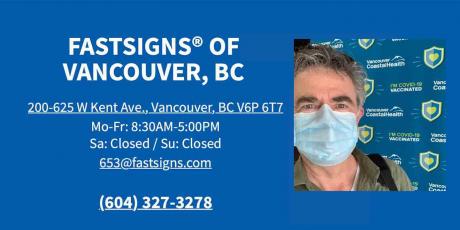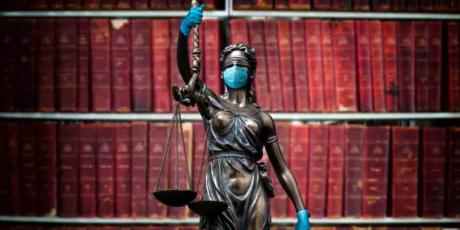The new restrictions, which take effect immediately, include a ban on indoor social gatherings and a return to remote learning for most students.
Kenney said the measures are necessary to prevent the health-care system from being overwhelmed by the surge in cases. He said Alberta is now averaging more than 1,000 new cases per day and that hospitalizations have reached record levels.
“We must act now,” Kenney said at a news conference Wednesday afternoon. “We must act decisively.”
The restrictions will be in place for at least three weeks, but could be extended if needed. They include:
• A ban on all indoor social gatherings with anyone outside of your household or core bubble;
• All K-12 students will move to online learning;
• Non-essential travel should be avoided;
• Restaurants and bars must close for dine-in service;
• Retail stores must reduce capacity to 15%;
• Gyms and fitness centres must close;
• Places of worship can remain open but attendance is limited to 15% capacity;
• Funerals can proceed with up to 10 people in attendance; and
• Outdoor gatherings are limited to 10 people.
Many of the new restrictions will only apply to businesses not signed onto a vaccine passport system the government is calling the “restrictions exemption program,†which will allow vaccinated Albertans, as well as those who can present a negative COVID-19 test, to access participating businesses without facing restrictions, other than masking.
- Editor: It is unknown how Kenney et al plan to circumvent the Genetic Non-Discrimination Act, which explicitly prohibits this PRECISE form of discrimination. It should be interesting.. got some popcorn?
The restrictions will be in place for at least three weeks, and the province said it will reassess the situation after that.
Alberta has seen a sharp rise in COVID-19 cases over the past few weeks, with more than 1,000 new cases reported on Thursday alone.
The province has also seen an increase in hospitalizations and ICU admissions due to the virus.
“We must act now to protect our health-care system and save lives,” Kenney said. “The situation is serious, and it’s getting worse.”
The new restrictions will be in place for at least three weeks, with the possibility of an extension if necessary.
- “We are facing an emergency that requires immediate action to save lives and to prevent an ongoing crisis in our health-care system,†he said.
- “We all wish we could simply turn the page and leave COVID in the past, but this disease is an invisible and ever-changing foe.â€
Kenney’s comments demonstrate a lack of understanding of the severity of the pandemic and the need for continued public health measures to contain it. His government’s decisions to lift restrictions have been widely criticized, as they have led to a fourth wave of infections and put Albertans at risk. It is clear that Kenney needs to take more responsibility for his actions and recognize the importance of following public health guidelines in order to protect Albertans from further harm.
Kenney acknowledged that the province made mistakes in its handling of the pandemic, but he refused to apologize for relaxing measures this summer. He argued that keeping them in place would have led to widespread non-compliance and discontent, and that it was better to take a more balanced approach.

Kenney said the province is in a “very serious situation” and that the new restrictions are necessary to reduce the spread of COVID-19. He said the government had to balance public health with economic considerations, but that it was clear that further action was needed.
The premier said the new restrictions will be in place for at least four weeks, and that they could be extended if necessary. He also warned Albertans not to travel outside of their communities unless absolutely necessary, and urged people to stay home as much as possible.
Alberta has seen a steady increase in hospitalizations since the start of 2021, with the number of patients in ICU more than doubling from 103 on Jan. 1. The province has also reported a record-high number of active cases, with more than 17,000 as of Tuesday.
This is concerning, as it suggests that the virus is still spreading rapidly in Alberta despite the province’s efforts to vaccinate its population. It also indicates that the vaccine may not be as effective at preventing severe illness as previously thought. It is important for Alberta to continue to focus on public health measures such as mask-wearing and physical distancing, in addition to increasing vaccination rates, in order to reduce hospitalizations and protect vulnerable populations.
The additional 132 ICU beds have helped to reduce the strain on Alberta’s healthcare system, allowing more patients to receive critical care. However, without additional surge spaces, the province would still be over capacity. This highlights the need for further investment in healthcare infrastructure and resources in order to ensure that all Albertans have access to quality care when they need it.
- “The impact of this wave on our health system is already worse than any of the three waves that came before,†Hinshaw said. “Our hospitals cannot sustain care for all Albertans with the dramatic and rapid increase of COVID patients we are seeing.â€
Kenney said that the government’s focus should be on protecting Albertans and helping them get through this difficult time. He said that the government will continue to work with health experts to ensure that the province is taking all necessary steps to protect its citizens. He also noted that the government has taken a number of measures in recent weeks, including introducing new restrictions on social gatherings, increasing enforcement of public health orders, and launching an aggressive vaccination campaign.
- “I don’t think this is about me. I think this is about protecting our hospitals. We have to do what is necessary to do so,†he said.
He said she has done an “extraordinary job†in a difficult situation.
Notley said that Kenney and Hinshaw had failed to act sooner despite warnings from experts, including the World Health Organization, about the dangers of a fourth wave. She also noted that Kenney had refused to implement stricter measures such as a province-wide mask mandate or closing non-essential businesses. Notley said that these measures could have helped prevent the current surge in cases.
- “Once again, those Albertans who did the right thing and got their shot will be punished for the failures of this UCP government to act. Once again, we’re back to step one,†Notley said.
- “The severity of this fourth wave —and the consequences we see today— are the direct result of this UCP government’s paralysis.â€
There were also 14 additional deaths reported Wednesday, bringing the provincial death toll to 1,837. There are now 645 Albertans in hospital with COVID-19, including 132 in intensive care.
The province has now recorded a total of 2,717 deaths since the start of the pandemic. Of those, 1,945 were linked to outbreaks in continuing care facilities.
Alberta Health Services said Wednesday that there are currently 1,837 active cases in the province and 6,619 people have recovered from COVID-19. There are also 441 people in hospital with the virus, including 95 in intensive care units.
The province has administered a total of 2,845,919 doses since the start of the immunization campaign.
Alberta Health Services said it is now offering walk-in appointments at select pharmacies and clinics in Edmonton and Calgary. The walk-in clinics are open to anyone 12 and older who is eligible for the vaccine.
AHS also said it is expanding its mobile immunization program to rural areas, with teams visiting communities across the province this week.

MLA Tanya Fir said in a statement that Kenney needs to take responsibility for the fourth wave of COVID-19 and outline a plan to fix it. She said that the government needs to focus on getting vaccines into arms, increasing testing capacity, and providing support for businesses and individuals affected by the pandemic. She also called on Kenney to provide more transparency about the decisions being made and how they are impacting Albertans.
- “He must show some humility and admit he was wrong and tell us how he will make it right,†Leela Aheer posted Wednesday on Twitter.
Aheer was first elected to the Legislative Assembly of Alberta in 2015 and was re-elected in 2019. She has served as the Minister of Culture, Multiculturalism and Status of Women since 2019. Prior to her election, she worked as a business owner, entrepreneur, and advocate for small businesses. She is an active member of her community and has been involved with numerous charities and organizations.
Shandro said the province is working to ensure that all Albertans who have received their vaccine will be able to access their proof-of-immunization cards. He said the province is also working with employers and other organizations to ensure they can accept digital proof of immunization.
He said the system was necessary to ensure people who have been vaccinated can safely travel and participate in activities. He also noted that the system would be voluntary and would not be used to restrict access to services or goods.
This article is a combination of files from The Canadian Press and Madeline Smith. It provides information about an event or topic, giving readers a comprehensive overview of the subject.
You may also like

